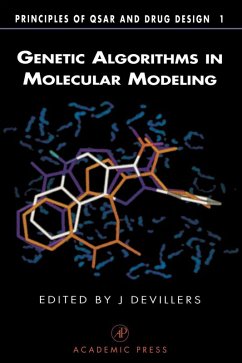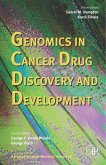Genetic Algorithms in Molecular Modeling is the first book available on the use of genetic algorithms in molecular design. This volume marks the beginning of an ew series of books, Principles in Qsar and Drug Design, which will be an indispensible reference for students and professionals involved in medicinal chemistry, pharmacology, (eco)toxicology, and agrochemistry. Each comprehensive chapter is written by a distinguished researcher in the field.
Through its up to the minute content, extensive bibliography, and essential information on software availability, this book leads the reader from the theoretical aspects to the practical applications. It enables the uninitiated reader to apply genetic algorithms for modeling the biological activities and properties of chemicals, and provides the trained scientist with the most up to date information on the topic.
Through its up to the minute content, extensive bibliography, and essential information on software availability, this book leads the reader from the theoretical aspects to the practical applications. It enables the uninitiated reader to apply genetic algorithms for modeling the biological activities and properties of chemicals, and provides the trained scientist with the most up to date information on the topic.
- Extremely topical and timely
- Sets the foundations for the development of computer-aided tools for solving numerous problems in QSAR and drug design
- Written to be accessible without prior direct experience in genetic algorithms
Dieser Download kann aus rechtlichen Gründen nur mit Rechnungsadresse in A, B, BG, CY, CZ, D, DK, EW, E, FIN, F, GR, HR, H, IRL, I, LT, L, LR, M, NL, PL, P, R, S, SLO, SK ausgeliefert werden.
"The series is a welcome addition to scattered literature on QSAR and drug design in over a dozen journals, and if judged by this first volume, the introduction of the series is timely. ...the book is a valuable addition to the growling literature associeated with the use of computers in chemistry. With the remaining books in this series, it ought to find a place on the desk of anyone who wishes to be kept abreast of recent advances in QSAR." --Milan Radic, Drake University, JOURNAL OF CHEMISTRY INFORMATION COMPUTER SCIENCES









